SUMMARY
This is AI generated summarization, which may have errors. For context, always refer to the full article.
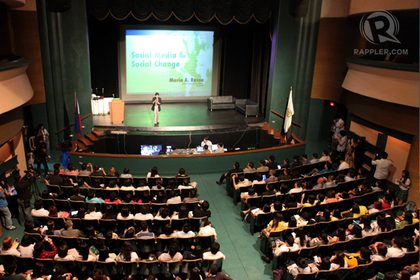
MANILA, Philippines – There are 27 million Filipinos on Facebook. There are 15 million households that own television sets. The question is: will social media gobble up television? And can it truly bring about social change?
Rappler CEO and executive editor Maria Ressa said that with rapidly changing technology, television could be a casualty.
“Why are we all talking about social media? Because of these really, really big numbers,” Rappler CEO and executive director Maria Ressa said.
“We know that traditional media is dying. Traditional media will no longer exist in the form you know it now,” Ressa, who was also former head of ABS-CBN news and current affairs, asserted during the “Social Media for Social Change” chat series held Thursday, January 12.
Rappler is a new player in online journalism that seeks to combine 1) professional journalism with 2) the wisdom of crowds—through social media—and 3) the power of technology to come up with reports that, Ressa said, will hopefully move people to positive action. These are Rappler’s three pillars.
Rappler’s citizen journalism arm, Move.PH, preceded Rappler itself. It started on Facebook in September 2011 and became part of the social news network Rappler sometime December 2011.
Thursday’s chat series was the third organized by Move.PH, after Baguio in October and Davao in November. It served as Rappler’s first public unveiling.
Move.PH’s partners were the Far Eastern University (venue), Konrad Adenauer Center for Journalism at the Ateneo, the Philippine Fulbright Scholars Association, the Philippine Association of Communication Educators, and Sun Cellular (contest and raffle prizes).
Everyone a journalist
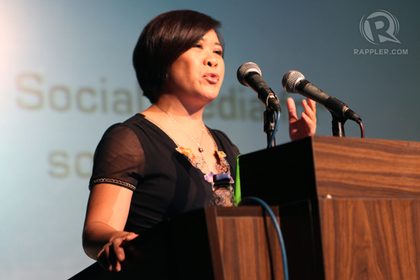
Keynote speaker Veronica Pedrosa — lead presenter of Al Jazeera English — stressed how technology has reduced the agenda-setting role of traditional media.
“Technology is shifting power away from the editors, the publishers, the establishment, the media elite. Now it’s the people who are taking control,” she said.
Citing an Ogilvy study, Pedrosa said Asians, in particular, have always trusted social networks more than centers of money, power, or authority.
Ressa, for her part, said the source of social media’s power is its ability transmit and amplify emotions the way traditional media has not been able to.
Both Ressa and Pedrosa were impressed with what has been called the “Arab Spring,” where social media played a role in the wave of protest movements that toppled dictators in the Middle East and North Africa.
It showed that with social media, people can decide to move together and act as groups. “We’re living in these cataclysmic times where your one post can change significant events around the world,” said Ressa.
With social media, anyone can be a journalist. Anyone can post a Facebook status or a Tweet that can literally change the world.
What happens to the journalist?
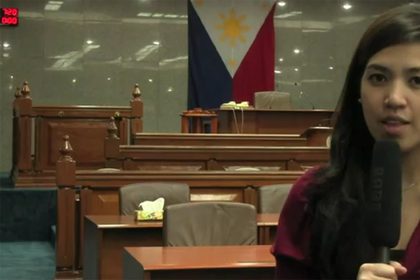
Rappler multimedia reporter Natashya Gutierrez showed participants how Rappler is trying to adapt to the challenges of social media.
Gutierrez showed how reporters can use smart phones with high definition cameras. “We have the tool to be first and to be fast. There’s that pressure because there’s that ability with the iPhone,” she said.
Rappler multimedia reporters are a one-man-team. They shoot videos, write text reports, write video scripts, and edit videos themselves. On top of these, they have to break and update stories on Twitter.
Videos, or images at least, are must-haves, too. This is one lesson that founders of Newsbreak, the investigative group, has learned. Newsbreak is now a section in Rappler.com.
“Another challenge is you have to be accurate,” said Gutierrez. “The minute you make a mistake on Twitter, the world will know about it,” she said.
But with social media, it’s not just scoops–breaking or investigative–that matter anymore. The rise of social media also means a change in the appetite of the consumers of news and information.
Ressa said the new challenge is: Who will first break the news and evoke emotions that will engage readers and viewers and, on a higher level, compel them to take action?
Social media for social change
Speakers all encouraged netizens to use social media for social change. “We’re the social media capital of the world. Let’s use it for nation-building. Let’s use it to make our world better,” Ressa said.
Like the Arab Spring, a moving story shared through social media is what it takes to change the world. A study shows that 80 percent of people’s decisions are based on emotions. Social media, on the other hand, amplifies emotions.
Rappler has been actively soliciting stories from netizens, especially during the recent disasters in Bukidnon, Cagayan De Oro, Iligan, Dumaguete City, and Compostela Valley.
News, Citizen journalism and community engagement director Chay Hofileña saw how social media was effective in the dissemination of information during times of emergency. After the disaster in Northern Mindanao, Move.PH was able to curate from netizens’ contributions a directory of people that Filipinos across the country can contact if they want to help.
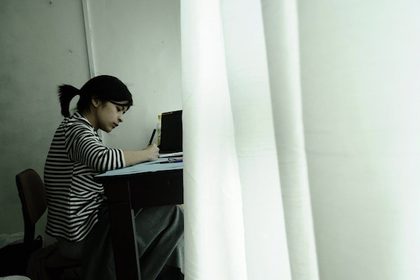
Rappler Patricia Evangelista stressed the importance of people standing up for issues that matter to them.
“It’s not great revolutions or presidents or leaders who change the world. It’s imagination. It’s the power of a story to push a person to say, ‘That matters to me. I care,'” Evangelista said after showing moving video stories of the Maguindanao massacre and the Cagayan De Oro disaster to a teary-eyed crowd.
“We know the repercussions of keeping silent. That’s why we tell the story, because silence is consent. To see it and not to say anything that means you’re okay with that. That means that, that’s the sort of universe you want to live in,” she said.
Rationalizing emotions
But just as social media can bring about positive events like the Arab Spring, it also has the power to bring about negative events like the London riots, where social media was used to organize looting.
In the Philippines, Hofileña cited as example the cyber bullying that targeted law student Christopher Lao, who complained about not being informed about flood levels. He became an overnight Internet laughing stock after a clip of his interview went viral.
Hofileña warned about the danger of carelessly posting anything online that can put one or even family members in vulnerable situations — especially in the “age of screen grabs.” Likewise, with constant updates via Twitter, for example, heavy users of social media can become desensitized to tragedy.
This is the downside of social media, said Ressa. Unfortunately, emotions are becoming increasingly negative in certain situations, she said. She cautioned participants against spreading anger and frustration.
There’s a need to rationalize emotions, said Ressa. Citing another study, Ressa said once people identify how they feel, they are better able to listen to reason.
This is the idea behind Rappler’s mood meter, one of the highlights of the site. Rappler visitors are encouraged to click on the corresponding emotion that the stories evoke.
Rappler’s most read story thus far, “UST breaks rules for Corona,” made 72% of people angry.
In the grand scale of things, the mood meter seeks to define how Filipinos feel about critical events in the country’s life.
“By clicking on the mood meter, you allow yourself to be more rational…. [It] helps you define how you feel about something. Once you define it, you become more rational and we can start to talk about what the issues are,” Ressa said. – Rappler.com
Add a comment
How does this make you feel?
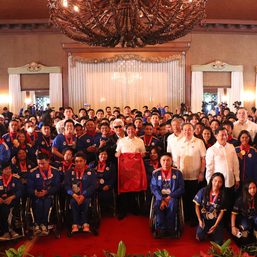



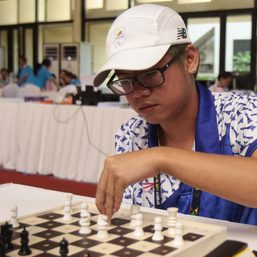
There are no comments yet. Add your comment to start the conversation.